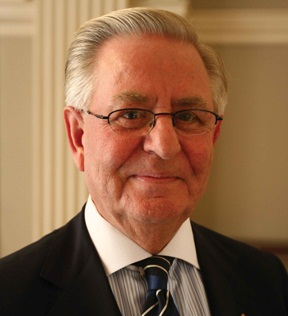By Sughra Ahmed
LEICESTER, UK: Many young British Muslims – who comprise over 50 per cent of the Muslim population in the UK – feel confronted by a world that objectifies and stereotypes them as anti-social or troublemakers who do not contribute to a productive society. In recent years, these youth have felt the need to rise up in response to these misjudgements and make their voices heard through engagement with others.
In 2009, I wrote a report, “Seen and Not Heard: Voices of Young British Muslims”, for the Policy Research Centre at the Islamic Foundation which specializes in research, policy advice and training on issues related to British Muslims. The report explores some of the challenges young British Muslims face, how they feel about them, as well as the positive work that they are involved in.
From grassroots to national and international initiatives building relationships between faith communities, young British Muslims have been hard at work, contrary to what many of us might think. In recent years they have become active members of multi-faith initiatives like the Interfaith Youth Core, the Tony Blair Faith Foundation’s Faiths Act Fellows, and the Christian Muslim Forum of which Rowan Williams, the Archbishop of Canterbury, is the patron.
Theatre productions such as those by the MUJU Crew, which provides a platform for Muslim-Jewish collaboration through art, and the Khayaal Theatre Company in London, which brings together Muslims and non-Muslims for education-oriented theatre, have raised the bar when it comes to creative ways of building interfaith relations in Britain. They aim to raise awareness of issues and break down barriers amongst faith groups by helping people regard others first as human beings. Initiative such as these and several other local programs instill not only a sense of creativity in participating youth but also a responsibility to go on and continue to foster interfaith understanding.
However, I find that a lot more needs to be done to build ties along faith and community lines before we can feel content about an integrated, vibrant future community and the proactive role that the British Muslim population can play. First, there is a great need for more innovative projects that young people in the UK — including young Muslims — can become a part of. Projects like the ones described above demonstrate the kind of creativity that is often lacking in the interfaith world. For most young people, this is a hurdle that frequently prevents them from becoming a part of interfaith work.
Other projects — such as regularly feeding the homeless as the Islamic Society of Britain has been doing, and Undergraduate ParliaMentors program by the Three Faiths Forum, which equips the next generation of leaders with the skills, experiences and networks they need to advance leadership careers — provide UK youth with an instant reward: feeling useful and seeing the immediate results of their good work.
Young Muslims, just like other youth, struggle with issues like low self-esteem, particularly given the negative media attention surrounding their identity and faith community. But working collaboratively on these kinds of projects that benefit the larger community pulls like-minded youth together across faith lines and gives them a chance to explore their abilities, interpersonal skills and dynamism. Many of those who succeed in building bridges go on to become role models for others.
But I’ve found that there are two areas that are almost entirely inactive: the first is intra-faith dialogue, between different Muslim communities, something that is challenging for any faith community. The second is interfaith dialogue between Dharmic faith groups — in other words, Hindus and Sikhs — and Muslims.
In most places there is no dialogue between these faith groups, perhaps because the communities are very small. In places such as Leicester, which has significant groups of each of these faiths, interfaith dialogue between Muslims and Dharmic faith groups has been reasonably successful to date, but more needs to be done so that larger numbers in these communities will join. The potential success of interfaith in a place like Leicester lies in making this type of work attractive and meaningful for young people.
Youth have inherited community and faith dynamics, and with them lies the responsibility to create an environment in which different faith groups can work together to confront 21st century challenges like climate change and poverty. In this age of globalization, when news travels fast, many international events can test community ties. The question is: will your community be able to pass that test, and what investments have you made to ensure it can?
Sughra Ahmed is a Research Fellow at the Islamic Foundations Policy Research Centre, Leicestershire. For more information on her work and the reports cited here please visit www.policyresearch.org.uk. This article was written for the Common Ground News Service (CGNews).

